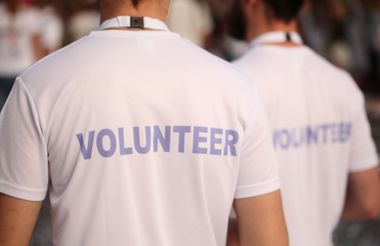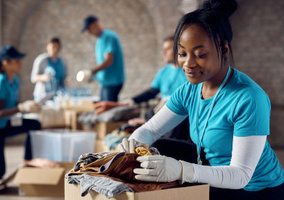Charities are anticipating a shortfall of three million volunteers as services struggle with rising need, the Royal Voluntary Service (RVS) has said.
The organisation surveyed 920 small, medium and large UK charities during late September and early October, asking how many volunteers they needed and their likelihood of being able to recruit them.
RVS, which has just launched a national digital platform aimed at “supercharging” volunteering, GoVo, told Civil Society it had used Charity Commission data to extrapolate its survey figures and produce the predicted national shortfall.
The organisation also drew on the most recent data gathered by Nottingham Trent University as part of its ongoing VSCE Barometer Survey, which found 44% of charities reporting rising requests for help.
Meanwhile, just over one in four (27%) reported being unable to meet demand.
In September, a report warned the UK would fall into a “dystopian state” without volunteers, with increasing social isolation and reduced health and wellbeing.
And data from the Centre for Ageing Better reveals that more than 110 million annual hours of volunteering by older people have been lost following a “post-pandemic slump”.
Health problems, old age and shortages of time because of changing home and work circumstances were among the factors cited for the fall in volunteering.
Time, uncertainty and nervousness obstacles to getting involved
RVS also commissioned research with the general public on barriers people face to participating in volunteering.
More than half (55%) of 2,000-plus respondents said they were consciously looking for ways to support causes and their local community.
But those surveyed mentioned lack of time (35%), feeling uncertain about the commitments required (25%), and general nervousness around volunteering (22%) as obstacles to getting involved.
Among younger adults from Generation Z and Millennial age groups, three-quarters (74%) said they were looking to support local causes and their community.
Similar proportions said time shortages (35%), and nervousness (24%) were barriers to volunteering, with respondents also mentioning a lack of flexibility (28%).
Across all age groups, between one in five and one in six mentioned struggling to find a volunteer role or being frustrated by the application process, something RVS claimed GoVo will help to address.
‘Busy lives can make volunteering feel out of reach’
Over 3,000 charities have signed up to the GoVo initiative, including Guide Dogs, Oxfam, RNIB, RSPCA and the Stroke Association.
Maria Rogan, head of the guide dog service operations at Guide Dogs, said: “We know that financial pressures and busy lives can make volunteering feel out of reach, but [dog] fostering can fit around work, family and other commitments — and it’s an incredibly rewarding way to make a direct, lasting difference.
“With a waiting list of people hoping for the independence, mobility and confidence a guide dog brings, we need to ensure we can attract, retain and grow our volunteer community to deliver this unique service.”
Catherine Johnstone, RVS’s chief executive, said: “Britain’s charities are facing an unprecedented volunteer shortfall, and vital services risk being unable to meet growing needs.
“Charities are standing together like never before, but they cannot do it alone – volunteering is essential.
“Every contribution, no matter how much time someone can give, helps sustain services, provide support, and make a real difference to causes and communities.”











